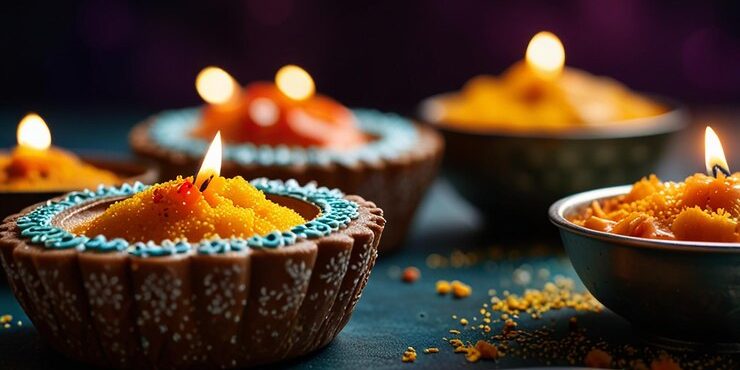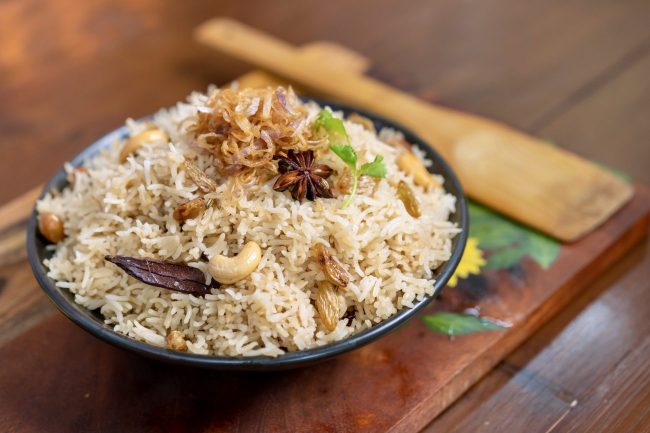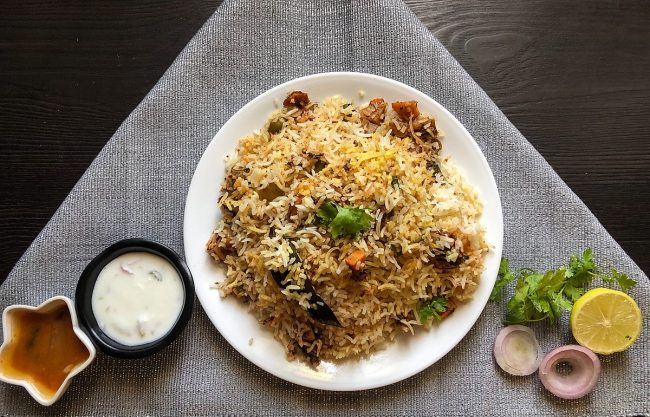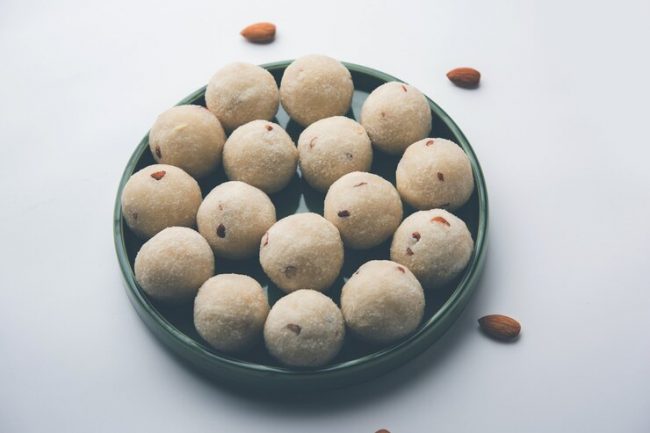
Deepavali, or the Festival of Lights, is a vibrant celebration for Hindus. This day symbolizes the victory of light over darkness and good against evil, and this year, it falls on the 31st of October. What a great way to end a month right
As families gather to celebrate, one of the most exciting elements is the delicious food! From mutton curry to murukku, these dishes not only tantalize our taste buds but also carry significant stories and meanings. Amidst the culinary indulgence, it’s essential to practice mindful eating so we don’t overindulge and be haunted by the guilt when we should be celebrating This is why in this article, we will explore traditional dishes celebrated during Deepavali and how we can savour them mindfully.
Murukku: The Spiraled Snack of Joy
When you think of Deepavali, murukku often comes to mind. This traditional South Indian snack, meaning “twisted” in Tamil, is made from rice flour and urad dal flour, spiced and deep-fried as a crunchy treat symbolizing breaking negative energies and welcoming positivity.
Murukku isn’t just a delicious treat, it is also packed with some health perks! The urad dal provides a boost of protein and fibre for gut and heart health, while carom seeds bring antibacterial benefits that support digestion. Although murukku comes with alot of benefits, enjoy murukku in moderation, as it’s deep-fried and can be high in saturated fats and refined carbs, which may affect heart health and blood sugar levels.
Mindful Ways to Enjoy Murukku:
- Choose Brown Rice Flour: Consider swapping rice flour with brown rice flour to increase fibre content and slow down the blood sugar spikes.
- Opt for Air-Frying: Use an air fryer instead of deep-frying to minimise oil content while retaining its crunchy texture.
- Action: When visiting relatives or open houses, limit yourself to 2-3 pieces of murukku per serving if they are small (10g) and 1-2 pieces if they are large (22g) to manage your carbohydrate and saturated fat intake.
Ghee Rice: A Festive Staple
Another cherished dish during Deepavali is ghee rice, also known as “Nei Soru” in Tamil. This flavorful dish combines basmati rice, ghee (clarified butter), and aromatic spices like cinnamon, cloves, bay leaves, and cardamom. Ghee gives the rice a rich flavour and golden shine, while the spices fill it with a delightful aroma. During Deepavali, ghee rice is a must-have, as ghee represents purity, prosperity, and good health, making it a festive favourite.
Basmati rice is a healthier alternative to white rice due to its lower glycemic index, which contributes to a more gradual increase in blood sugar levels. Additionally, while ghee does contain essential nutrients and healthy fats that can promote brain health and provide anti-inflammatory benefits, it also has a significant amount of saturated fat, which should be consumed in moderation.
Mindful Ways to Enjoy Ghee Rice:
- Choose Brown Basmati Rice: Opt for brown basmati rice for higher fibre content and a lower glycemic index.
- Limit Ghee Usage: Keep ghee to 1-2 tablespoons to enjoy its benefits without excessive saturated fat.
- Create a Balanced Plate: Fill half your plate with a generous helping of mixed vegetable salad, and pair it with a fist-sized portion of ghee rice and a palm-sized serving of protein, like mutton or chicken curry.
Biryani: A Flavorful Celebration
Biryani is another iconic dish synonymous with Deepavali festivities. This beloved South Asian dish consists of spiced rice, meat (such as chicken, mutton, beef, or seafood), and an array of aromatic spices. The layering technique used in preparing biryani allows the flavours to meld beautifully, making it a symbol of abundance during celebrations.
The herbs and spices in biryani, like cardamom, cinnamon, and turmeric, are packed with antioxidants and anti-inflammatory properties that protect our bodies from the damaging effects of free radicals. These pesky free radicals can cause inflammation, which is connected to various health issues. So, by enjoying these flavorful herbs and spices, we can boost our body’s natural defences, reduce inflammation, and enhance our overall well-being. However, due to the high carbohydrate content and the potential for excessive sodium and saturated fat used in cooking biryani, it’s important to consume it mindfully.
Mindful Ways to Enjoy Biryani:
- Limit Ghee and Salt: Use only 1-2 tablespoons of ghee and not more than 1 teaspoon of salt in your biryani preparation.
- Choose Whole Grains: Opt for brown basmati rice to enhance fibre intake.
- Balanced Serving: Aim for a fist-sized portion of rice and a palm-sized serving of meat, accompanied by a refreshing side of yoghurt-based raita to keep saturated fat in check, along with a hearty half-plate of mixed Indian vegetable salad.
Nei Urunde: A Sweet Treat
Another traditional sweet treat during Deepavali is the laddoo, specifically nei urunde, made from roasted gram flour (besan), which is a good source of plant-based protein and is flavoured with ghee, sugar, and cardamom. These delightful bites symbolise the sweetness of the festival, embodying joy and celebration.
While laddoos are tasty, they can also be high in sugar and calories. It’s essential to enjoy them mindfully to avoid excessive sugar intake.
Mindful Ways to Enjoy Nei Urunde:
- Control Portions: Limit yourself to one small laddoo to satisfy your sweet cravings without overindulging.
- Pair with Healthy Foods: Enjoy laddoos as part of a balanced meal to maintain overall health.
Panipuri: A Crunchy Delight
No Deepavali celebration is complete without the crispy goodness of panipuri! These delightful hollow balls are filled with a mix of spicy mashed potatoes, chickpeas, and tangy tamarind water, making them a festive favourite.
While panipuri can be nutritious with ingredients like potatoes and chickpeas, it’s essential to enjoy them mindfully.
Mindful Ways to Enjoy Panipuri:
- Air-Fry for a Healthier Crunch: Opt for air-frying the puris to cut down on oil and saturated fats.
- Watch the Fillings: Use boiled chickpeas, sprouts, or potatoes for a nutritious filling.
- Control the Sugar and Salt: Make your own tamarind water to limit added sugars and salts.
- Portion Control: Stick to 2-3 panipuris per serving for a moderate calorie intake while savouring the flavour.
Conclusion
Deepavali is a beautiful festival that brings together family, friends, and delicious food. While we indulge in all these traditional delicacies, practising mindful eating is crucial to ensuring our health and well-being. By making small adjustments to our meals and controlling portion sizes, we can enjoy the flavours of Deepavali without compromising our health. So, let’s celebrate this Festival of Lights with joy, gratitude, and a mindful approach to our festive feasting!


















